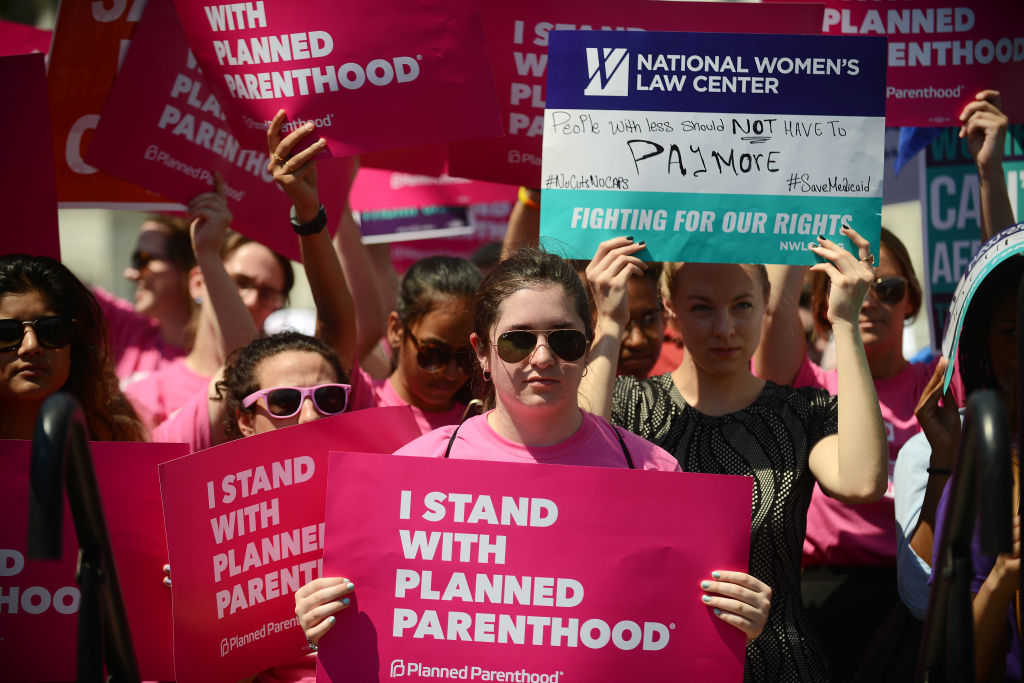Pro-choice activists are celebrating the 45th anniversary of Roe vs. Wade — the Supreme Court battle that legalized abortion — with great fanfare. But it turns out their viral mantra in favor of the 1973 verdict is painting neither a full nor complete picture when it comes to public reaction to abortion.
READ: Should Haitians Come to the U.S.? Here’s Why One Missionary Says No
Organizations like Planned Parenthood and NARAL Pro-Choice America have been appealing to polling data and tweeting things like, “I am one of the 7 in 10 Americans who support abortion access” as well as the hashtag #7in10forRoe, though there’s an uncomfortable reality that these people must content with: the real-life public reaction to abortion is monumentally complicated.
“Today is the 45th anniversary of #RoevWade! Share why you stand with the 70% of Americans who support abortion access with #7in10forRoe,” NARAL tweeted on Monday.
Today is the 45th anniversary of #RoevWade! Share why you stand with the 70% of Americans who support abortion access with #7in10forRoe. pic.twitter.com/CFlpx9Mi55
— Reproductive Freedom for All (@reproforall) January 22, 2018
And, to a degree, the organization is speaking some truth, as 69 percent of Americans answered “no” in December 2016 when asked if they wanted to see the Supreme Court “completely overturn its Roe vs. Wade decision”; only 28 percent said yes, the Pew Research Center reported.
Another poll from 2014 found around the same percentage of Americans saying that abortion shouldn’t be restricted by the government.
But the story hardly ends there. While statistics like this have likely fueled the #7in10forRoe hashtag appearing on Twitter on Monday, there are other polls and studies that paint an entirely different picture when it comes to the public’s collective stance on the ever-contentious abortion issue.
In fact, when questions focus more on the health of an unborn baby, seven-in-10 Americans actually side with protecting the unborn child. A poll conducted last year found that 69 percent of Americans agree with the idea that “if a doctor is able to detect the heartbeat of an unborn baby, that baby should be legally protected,” according to pro-family advocacy group Faith2Action.
But the most surprising data was discovered when the results were broken down by party affiliation, with 86 percent of Republicans, 61 percent of Independents and 55 percent of Democrats agreeing with this sentiment, according to a recent Barna Group poll commissioned by Faith2Action.
Sarah Weddington was 27 when she argued Roe v. Wade — the youngest person ever to win in the Supreme Court. Today is the 45th anniversary of the landmark case that legalized abortion in the U.S. Young people have the power to change the world. #7in10forRoe #Roe45 pic.twitter.com/F9loNrYJYo
— Planned Parenthood (@PPFA) January 22, 2018
Again, it’s all in the wording. A separate Marist poll released last year found that the majority of Americans — including supporters of former Democratic presidential candidate Hillary Clinton — wanted to see significant restrictions on the procedure.
Majorities of both Trump supporters (91 percent) and Clinton supporters (55 percent) supported restricting abortion to the first three months. Additionally, of those who favor such restrictions, 74 percent want to see the Supreme Court rule on such a measure, adding up to about 55 percent of the nation overall.
And it was apparently an important issue to a great many citizens, as 59 percent said it is either “an immediate” or “important” priority.
More than three quarters of Americans would limit abortion to — at most — the first three months of pregnancy, according to a new Marist Poll. https://t.co/2TV57ho5qB #WhyWeMarch pic.twitter.com/Zf9iaHEJk3
— Knights of Columbus (@KofC) January 17, 2018
An updated Marist poll in 2018 came to similar conclusions, as per the Knights of Columbus:
More than three quarters of Americans would limit abortion to — at most — the first three months of pregnancy, according to a new Marist Poll. That number has consistently been about three quarters or more for the past decade.
This year, the survey found that 76 percent of Americans want such limits. Strong majorities of Republicans (92 percent), Independents (78 percent) and Democrats (61 percent) agree, as do a majority of those who identify as pro-choice (60 percent).
While a slim majority of Americans (51 percent) identify as pro-choice, even 60 percent of those who identify as such also support substantial limits.
So, while Planned Parenthood and NARAL are technically correct that people are resistant to overturning Roe, their narrative doesn’t provide a complete picture, as many Americans seemingly support early restrictions on abortion.
Plainly stated: Majorities might not want to see the Supreme Court decision overturned outright, but they appear more than open to amending it to protect life — and at startlingly early stages in a pregnancy. It’s complicated, but the numbers clearly don’t lie.



